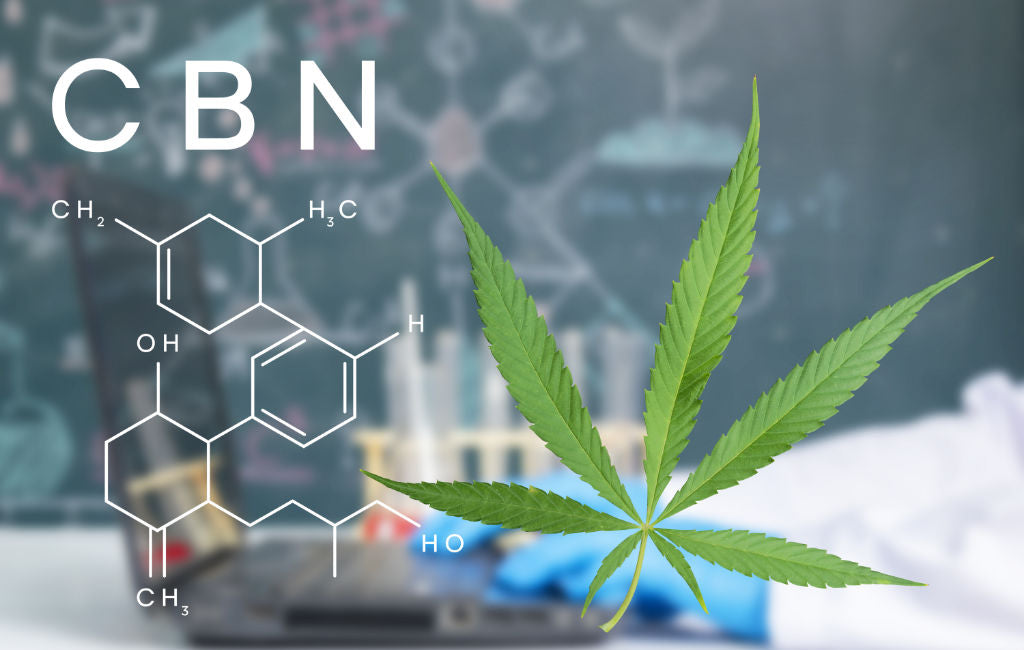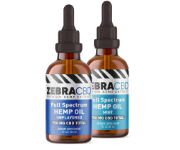
In order to answer the two-part alphabet soup question posed above, it’s necessary to look at how CBD (cannabidiol) and THC (tetrahydrocannabinol) — both chemical compounds found in the cannabis plant — function in our body’s endocannabinoid system (ECS).
Our ECS acts on multiple systems in our body, including the cardiovascular, respiratory, reproductive, and nervous systems. It sends out neurotransmitters to areas of the body to check whether everything is running smoothly. If it finds a problem, it sends out instructions on how to fix it.
...there’s plenty of anecdotal evidence online from people saying that CBN has contributed to a night of healthier sleep, and that CBN has a calming effect on them.
The two main cannabinoid receptors in our ECS are CB1 and CB2. The CB1 receptor impacts our central nervous system, which means it affects mood, memory processing, motor control, speech, sensations, thoughts, etc. CB1 receptors also influence lung, liver, and kidney function.
The CB2 receptor also supports your hematopoietic stem cells (HSCs), which produce new blood cells.
CBD and THC interact with your CB1 and CB2 receptors differently. CBD does not have a strong affinity for CB1 receptors, and it does not directly activate CB2 receptors. It is thought to interact with the body through other mechanisms which indirectly impact both the CB1 and CB2 receptors.
THC, on the other hand, binds to both the CB1 and CB2 receptors. It mimics the endocannabinoids produced by your body and activates the receptors. This can produce both positive as well as less than desirable results. For example, THC has the potential to reduce pain, but, in some cases, it can also cause paranoia. And, of course, THC has an intoxicating effect, or — to put it another way — It will get you “high.”
So how does CBN (cannabinol) fit into the cannabinoid grand scheme of things? First, let’s look at exactly what CBN is…
Ready to incorporate CBN into your sleep wellness routine? We’ve got you covered with our Sleep Support CBN Gummies that include 30mg. of CBD & CBN per gummy!
What’s CBN?
CBN is the nonenzymatic oxidation byproduct of THC. What does that mean? After prolonged storage (and especially at higher temperatures), THC changes into CBN. So, if CBN is derived from THC, the first question that may have popped into your head is…
“Does CBN get you high?”
The answer is no, for practical purposes. CBN is far less intoxicating than THC. Its psychoactive properties are about 10% those of THC, which means it would take quite a bit of CBN to get you high. And therein lies the key to the CBN opportunity. So what does CBN do?
There is a market among people who love the medical cannabis benefits of THC, but don’t like the intoxicating, psychoactive effects of THC. Like THC, CBN binds (although not as strongly) to both CB1 and CB2 receptors (more strongly to the CB2 receptor), which allows you to potentially experience medicinal benefits comparable to those of THC, but without the high sensation. Those benefits include a reduction in inflammation, nervousness, stomach discomfort, and pain. CBN is also believed to act as an antioxidant, reducing the number of free radicals in the bloodstream. Plus, it’s been shown to stimulate one’s appetite and help with breathing issues. (For additional information, see “What Is CBN Oil?”)
CBD, THC and CBN Health Benefits Compared
There is a lot of overlap in the health benefits of THC and CBD. Studies have shown that both offer benefits such as chronic pain relief, stomach discomfort, easing of tension, stress reduction and restful sleep promotion. For CBN, studies hint that it may ease physical discomfort, stimulate appetite and contribute to a healthy heart. (For details about the specific CBN studies and benefits, click here.)
There are a couple of differences: CBD has been shown to reduce seizures, while THC and CBN seemingly do not affect them. Plus, THC and CBN isolate are thought to increase one’s appetite, where a CBD product has no effect.
Is CBN Really “the Sleepy Cannabinoid?”
You may have heard that pure CBN is sometimes called the “sleepy cannabinoid.” Let’s look at the evidence to see if this rings true.
There are two main studies people point to as proof of CBN’s sedative properties. The first study is from 1975. The test involved five male volunteers. The small study size is the first issue. The second issue is that it only seems to mention the volunteers feeling “drowsy” when THC was also ingested.
Another reason some have labeled CBN as the sleepy cannabinoid may have something to do with the fact that it’s usually found in older cannabis, which is also high in sedating terpenes. (Terpenes are aromatic oils that give cannabis varieties their distinct flavor, with some also playing a role in promoting relaxation, stress relief, increasing focus, etc.)
That said, there’s plenty of anecdotal evidence online from people saying that CBN has contributed to a night of healthier sleep, and that CBN has a calming effect on them.
Side Effects of CBN vs. CBD vs. THC
Like CBD (cannabidiol), CBN is generally well-tolerated by the body, and the potential side effects — which are usually quite mild — are similar to the main potential side effects of CBD: drowsiness, dizziness, tiredness and diarrhea.
THC has been known to cause such temporary side effects as an increased heart rate, coordination problems, red eyes, memory loss, unease and dry mouth.
(For a closer look at these three cannabinoids, see CBN vs. CBD.)
What Is CBN’s Place Among Cannabinoid Options?
The ultimate problem with determining how CBN may benefit human health and well-being is that not a lot of study has been done. The limited studies that have been done usually lump CBN with additional cannabinoids when testing, so it’s impossible to tell which cannabinoid is responsible for which health benefit.
What we do know is that CBN binds in a similar (but lesser) way, as THC does to the CB1 and CB2 receptors — and that CBD does not bind directly to either the CB1 or the CB2 receptor. This has created the potential for it to fill a void in the marketplace of a cannabinoid that provides you the medicinal benefits of THC but will not get you high. Kind of like having your cannabis brownie and eating it too.









